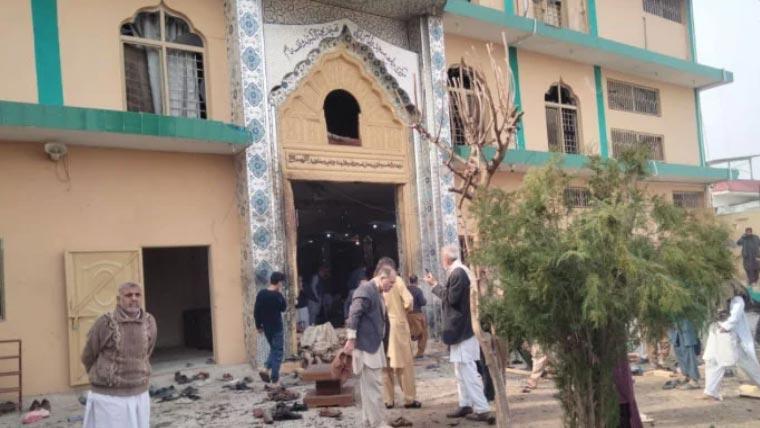India granted visas to only 100 Pakistani pilgrims for Urs of Hazrat Khawaja Moinuddin


The recent denial of significant number of visas i.e. 400 by India to Pakistani pilgrims intending to attend the 813th Urs of Hazrat Khwaja Moinuddin Chishti at Ajmer Sharif from January 2 to January 10, 2025, has raised significant concerns regarding the treatment of religious minorities and the facilitation of their rights in the region by India.
India granted visas to only 100 Pakistani pilgrims for the Urs of Hazrat Khawaja Moinuddin Chishti, falling short of the set quota of 500.
This denial, despite a set quota of 500 attendees, has raised concerns about India's treatment of religious minorities and the facilitation of their rights.
This Indian action has deprived numerous Pakistani devotees of the opportunity to participate in a deeply significant spiritual event, straining the cultural and religious bonds that transcend national boundaries.
In contrast, Pakistan has consistently demonstrated a commitment to accommodating religious minorities, exemplified by the facilitation of Sikh pilgrims from India to the Kartarpur Sahib Gurdwara.
The Kartarpur Corridor, inaugurated in 2019, allows Indian Sikh pilgrims visa-free access to one of their holiest sites, fostering goodwill and interfaith harmony.
Thousands of Indian Sikhs have utilized this corridor to participate in religious festivities, such as the birth anniversary of Guru Nanak, the founder of Sikhism.
This openness reflects Pakistan's broader policy of respecting and promoting the rights of religious minorities, ensuring their access to sacred sites and participation in religious events.
Pakistan warmly welcomes Sikh and Hindu pilgrims alike.
Pakistan has shown its commitment to interfaith harmony by facilitating 84 Hindu pilgrims to celebrate the 316th birth anniversary of Shiv Avtari Sant Shadaram Sahib at Shadani Darbar in Sindh.
The Hindu pilgrims were welcomed by Pakistani officials and given special transportation for their rituals, with their return scheduled for January 15.
Conversely, India's repeated denial of visas to Pakistani pilgrims raises questions about its commitment to upholding the rights of religious minorities and facilitating interfaith engagements.
Such actions not only violate the 1974 Pakistan-India Protocol on visits to religious shrines but also hinder efforts aimed at improving bilateral relations through people-to-people contacts.
The disparity in approaches between the two nations is evident: Pakistan's proactive measures to support religious minorities stand in stark contrast to India's restrictive policies.
This contrast contributes to Pakistan's image as a nation fostering inclusivity and religious freedom, while India's actions may be perceived as undermining these values.
The international community has taken note of these developments, with various human rights organizations expressing concern over India's treatment of religious minorities.
Pakistan’s support for minorities strengthens its image as a facilitator of religious freedoms for minorities, while India’s visa denial reflects its disregard for minority rights, damaging its global reputation.

Pakistan committed to boost ties with Uzbekistan in diverse fields: President
- 6 hours ago

The quiet reason why Trump is losing Gen Z
- 18 hours ago

PM Shehbaz invites Uzbek firms to invest in Pakistan
- 6 hours ago

31 martyred, 169 injured in Islamabad suicide blast
- 6 hours ago

Borderlands 4 for Switch 2 is on ‘pause’
- 20 hours ago

Aluminium: Why Google’s Android for PC launch may be messy and controversial
- 20 hours ago

ICE invades Minnesota and Minnesotans fight back
- 20 hours ago

I don’t hate the robot barista like I thought I would
- 20 hours ago

You need to listen to M83’s icy post-rock record Dead Cities, Red Seas & Lost Ghosts
- 20 hours ago

YouTube now blocking background playback on mobile browsers
- 20 hours ago

Department of Justice appeals Google search monopoly ruling
- 20 hours ago

Security forces kill 24 Indian backed terrorists in Khyber Pakhtunkhwa operations
- 13 hours ago


.webp&w=3840&q=75)
.jpg&w=3840&q=75)






